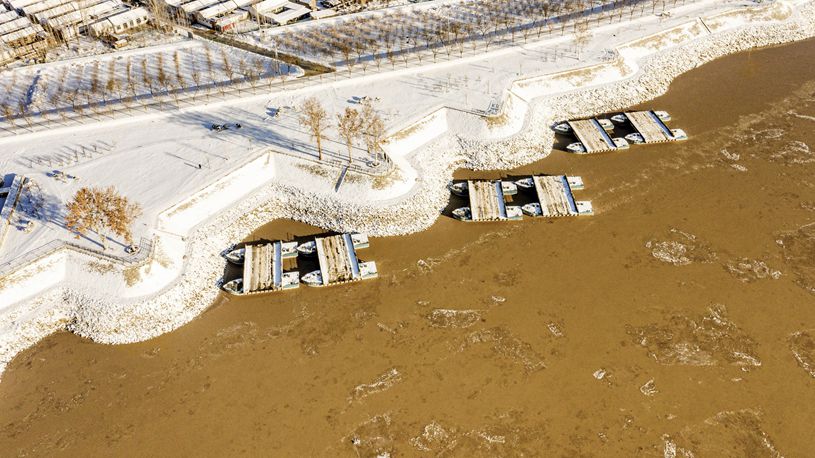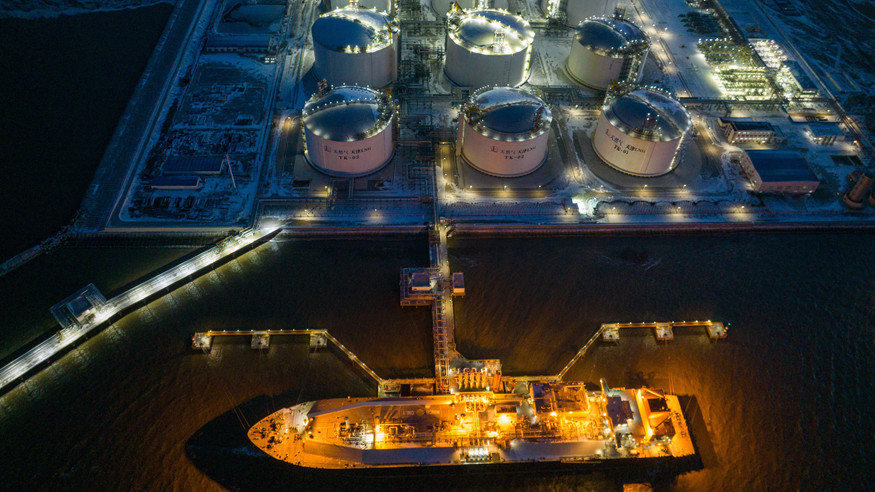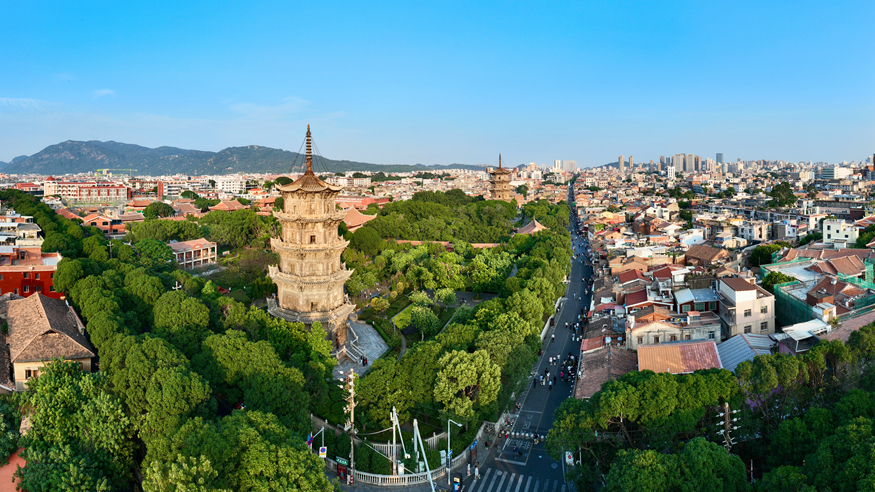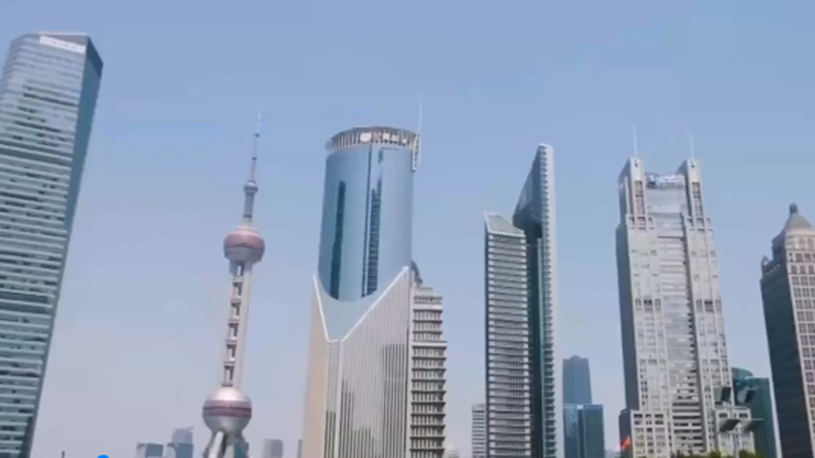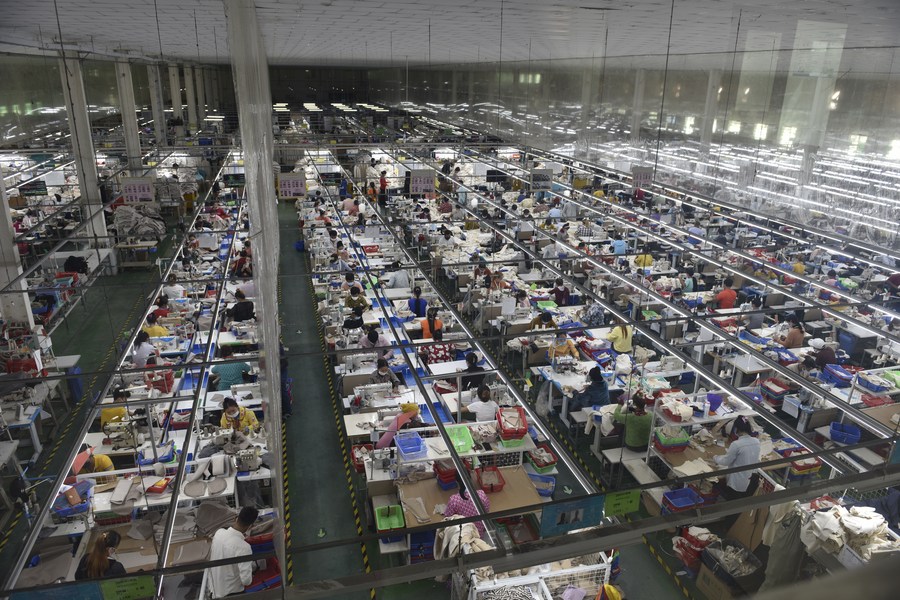
Garment workers make clothes at a factory in Phnom Penh, Cambodia on Dec. 17, 2021. (Xinhua/Wu Changwei)
Cambodian government is working to improve business environment and upgrade infrastructure and logistics in efforts to accelerate growth while ensuring economic resilience and sustainability, according to Mey Kalyan, chairman of Cambodia Development Resource Institute.
PHNOM PENH, Dec. 19 (Xinhua) -- Cambodia's economic growth remained strong in 2023 despite weakening global demand and a slowdown in real estate, a government official and experts have said.
Economy and Finance Minister Aun Pornmoniroth said the economy was expected to grow by 5.6 percent in 2023, pushing up the Southeast Asian country's gross domestic product (GDP) to 32.17 billion U.S. dollars.
"For 2024, Cambodia's economy is forecast to achieve a growth rate of around 6.6 percent, which will increase the GDP to 35.16 billion U.S. dollars," he told the parliament during a 2024 budget law debate in mid-November.
Pornmoniroth, who is also a deputy prime minister, said the kingdom's GDP per capita was estimated at 1,917 dollars in 2023 and would rise further to 2,071 dollars in 2024.

This photo taken on Nov. 21, 2023 shows a view of the General Tire Technology (Cambodia) factory in the Sihanoukville Special Economic Zone (SSEZ), a joint venture between Chinese and Cambodian companies, in Sihanoukville, Cambodia. (Photo by Liao Hongqing/Xinhua)
Cambodia's economy mainly relies on garment, footwear and travel goods exports, construction and real estate, tourism and agriculture.
He said that in 2024, the industrial sector, mainly garment and construction, is predicted to surge by 8.5 percent, while the service sector, mainly tourism, transport, telecom, trade and real estate, is expected to increase by 6.9 percent, and agriculture is projected to rise by 1.1 percent.
He added that the country's inflation is forecast at 2.5 percent in 2024, the same rate as that of 2023, if the price of oil on the international market returns to its normalcy.
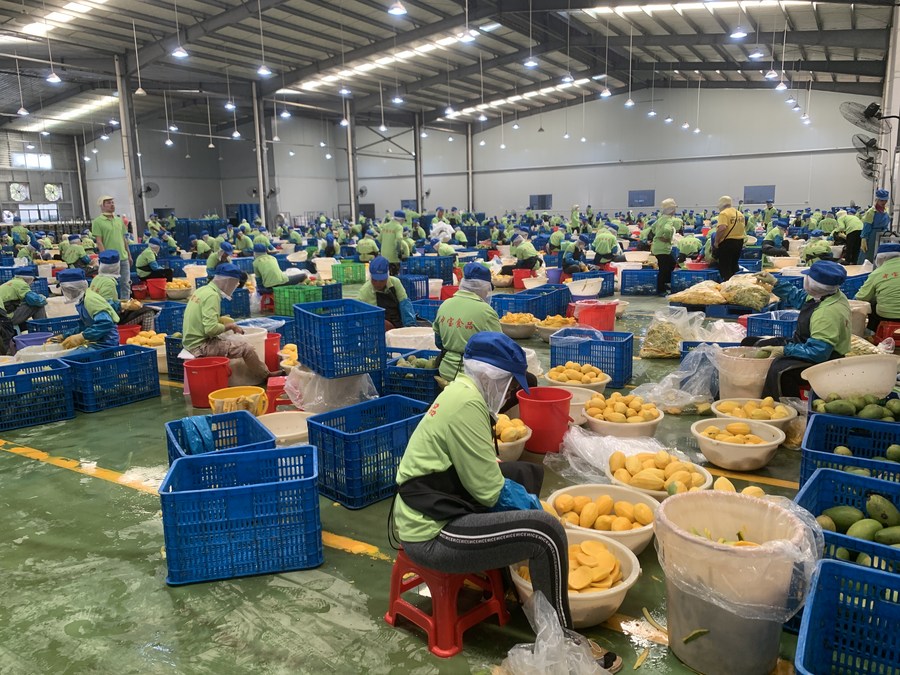
Workers slice ripe mangoes at the Zhong Bao (Cambodia) Food Science & Technology Co., Ltd. in Kampong Speu province, Cambodia on March 7, 2023. (Photo by Van Pov/Xinhua)
Mey Kalyan, advisor to the Royal Government of Cambodia and chairman of the Cambodia Development Resource Institute, said the country's economy had done extremely well in the pre-COVID-19 era, with an economic growth of 7.1 percent in 2019, according to the World Bank.
"Sadly COVID-19 hit us badly afterward, as has happened to every country, thus the growth has declined significantly until 2023, when the growth is estimated to be around 5.3 percent to 5.6 percent by respectable institutions. Nevertheless, this projected growth is the best in the last three years," he told Xinhua on Monday.
Kalyan said the government is proactively taking drastic measures aimed at improving the business environment, upgrading infrastructure and logistics, and developing human resources in particular practical skills.
"These measures will accelerate economic growth, while at the same time ensuring economic resilience, sustainability, inclusivity, and competitiveness," he added.

Tourists visit the Angkor Archeological Park in Siem Reap province, Cambodia, April 16, 2023. (Photo by Sao Khuth/Xinhua)
Kalyan said these measures will also improve Cambodia's standing to better reap benefits presented by the Regional Comprehensive Economic Partnership (RCEP) agreement and the Cambodia-China Free Trade Agreement (CCFTA), which will, in turn, be expected to boost economic growth.
The World Bank said in its semi-annual outlook for Cambodia late last month that the country's economic growth is projected at 5.4 percent in 2023 and 5.8 percent in 2024, on anticipated increases in infrastructure investment and benefits from regional trade agreements.
In the short term, overlapping negative shocks from the pandemic, the Russia-Ukraine conflict, and high international interest rates are expected to continue to constrain growth, the lender said, adding that investment in merchandise manufacturing, including garments, and exports of finished goods have both weakened, reflecting lower global demand.
"Looking ahead, economic growth could further be affected by weakening global demand or renewed oil and food price shocks," the World Bank said. "Domestically, rising household debt and domestic credit in the real estate sector remain risks."■


